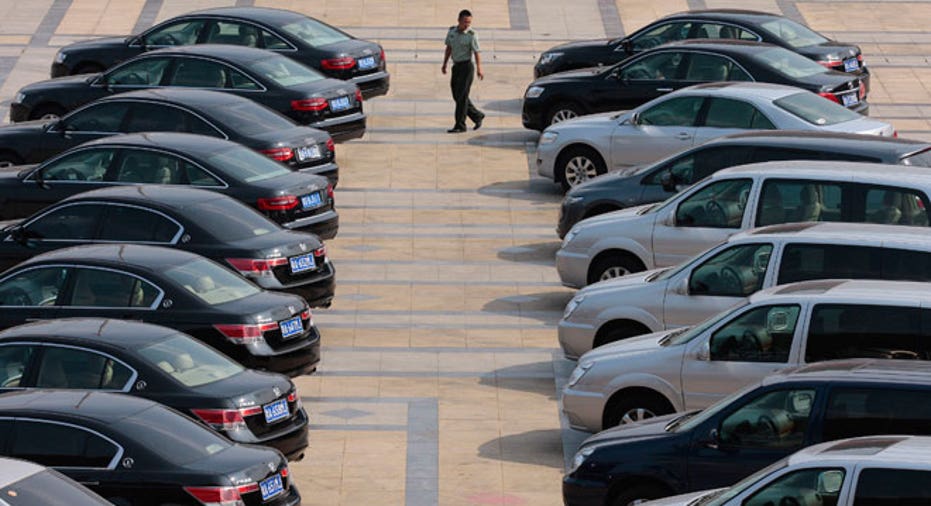Best and Worst States for Stolen Car Recovery

Car thieves don't do much summer vacationing -- as the days heat up, they get to work stealing vehicles, according to a claims analysis by Progressive.
Progressive analyzed its 2012 auto insurance claims and determined that thefts rise by 15% in July and August compared with the rest of the year. July had the most stolen car claims, followed by August and June.
Nine out of the 10 worst days for stolen cars are in the summer. Thieves made off with the most vehicles on July 15, followed by July 1, April 29 (the only non-summer day), Sept. 4, July 23, Aug. 26, Sept. 15, July 7, Sept. 23 and Aug. 12, according to the insurer.
The study also points out that most thefts occur on weekends. Sunday may be a day of rest for you, but not for the bad guys: Progressive says it's the worst day of the week, followed by Saturday.
Progressive also found that almost half (46%) of stolen cars are eventually recovered countrywide, although recovery rates vary significantly from state to state. The news isn't so bad for Washington, which has a 71% recovery rate. But Michigan residents may be scowling, with only 19% of missing vehicles returned to owners.
The five states with the lowest recovery rates in 2012, according to Progressive claims data, are:
- Michigan ; 19%
- Pennsylvania; 26%
- Arkansas; 28%
- Alabama ; 28%
- Mississippi ; 29%
The top five states for recovered cars are:
- Washington; 71%
- Utah; 63%
- South Dakota; 61%
- Nevada; 61%
- California ; 60%
My car was stolen: Does my car insurance cover that?
If your car is stolen and not recovered, you must have comprehensive auto insurance coverage to file a claim. Otherwise, you will be footing the bill for a replacement yourself. Whether or not it makes sense to carry comprehensive coverage depends on your personal financial situation, where you live and the age, model and value of your car.
It may not make sense to pay for comprehensive insurance, which also covers damages due to hail, flooding, vandalism and collisions with animals, if your car is so old or in such bad shape that you wouldn't pay to repair it if it had significant damage. Your insurance company will pay out only what the car is worth, minus your deductible.
Still, if you own a l car that's targeted by thieves, comprehensive insurance may be worthwhile. For instance, the most-stolen vehicles last year in California, which typically has the highest car-theft rates in the country, were the 1994 Honda Accord, the 1998 Honda Civic and the 1991 Toyota Camry. The 1994 Honda Accord is also the most stolen model nationwide, according to the National Insurance Crime Bureau (NICB).
Also, comprehensive premiums are typically a small part of your insurance bill as they are much lower than liability rates for the average driver.
Where you live is another factor to consider when deciding whether to carry comprehensive coverage to cover theft. The worst metro areas for car theft, according to the latest "Hot Spots" report by the NICB, are:
1. Modesto, Calif.
2. Fresno, Calif.
3. Bakersfield-Delano, Calif.
4. Stockton, Calif.
5. Yakima, Wash.
6. San Francisco-Oakland-Hayward, Calif.
7. San Jose-Sunnyvale-Santa Clara, Calif.
8. Vallejo-Fairfield, Calif.
9. Spokane-Spokane Valley, Wash.
10. Redding, Calif.
Making your car less appealing to crooks
Of course preventing your car from being stolen in the first place is a wise move. Todd Golling, a former Virginia state trooper who works as a Progressive "claims trainer," says the first step in protecting your vehicle is common sense.
"Anywhere that you'll be parked for a long time -- churches, sports venues, concerts, etc. -- are targets for car thieves," Golling said in a statement. "That applies to the theft of the car itself and items in the car. Remove everything when you're at those kinds of places. A visible iPod or GPS is a temptation for 'smash and grab.'"
Golling also suggests the following:
- Don't leave stuff inside the car while staying at a hotel. Thieves patrol hotel parking lots and look for things like out-of-state plates or suction-cup marks on the windshield to indicate a GPS device might be in the car.
- If you go shopping, keep a blanket in your vehicle to cover bought items. Thieves are less likely to take the risk of breaking into your car if they don't know what they're getting.
- Don't keep spare vehicle or house keys in your vehicle.
- To protect your identity when not in the car, take anything that has your address on it with you, for instance the vehicle registration and insurance card.
- Consider installing anti-theft devices such as gas cap locks, wheel locks and engine immobilizers to deter thieves.
Protective devices may snag car insurance discounts
The cash you may save by installing anti-theft devices depends in part on where you live and your insurer, but the NICB says you could qualify for a 15 to 20% discount on comprehensive premiums.
Do keep in mind, though, that your vehicle may already have some safeguards, such as alarms and disabling devices, as standard features. Check the manual or ask the dealership. These factory-equipped models may also qualify for rate reductions. The NICB also recommends devices that immobilize a vehicle, including kill switches, fuel cut-offs and smart keys.
The NICB says there are several other ways you can hinder crooks, most costing less than $200 to buy and install:
- Alarms, with a recommended 120-decibel siren: $150 to $1,000.
- Steering column collars: $100 to $200 installed.
- Steering wheel locks: $25 to $100.
- Steering wheel/brake pedal lock: $15 to $80.
- Wheel locks: $80 to $200.
- Tire locks/tire deflators: less than $50.
- Window etching: up to $100, or do it yourself.
The original article can be found at Insurance.com:Best and worst states for stolen car recovery



















